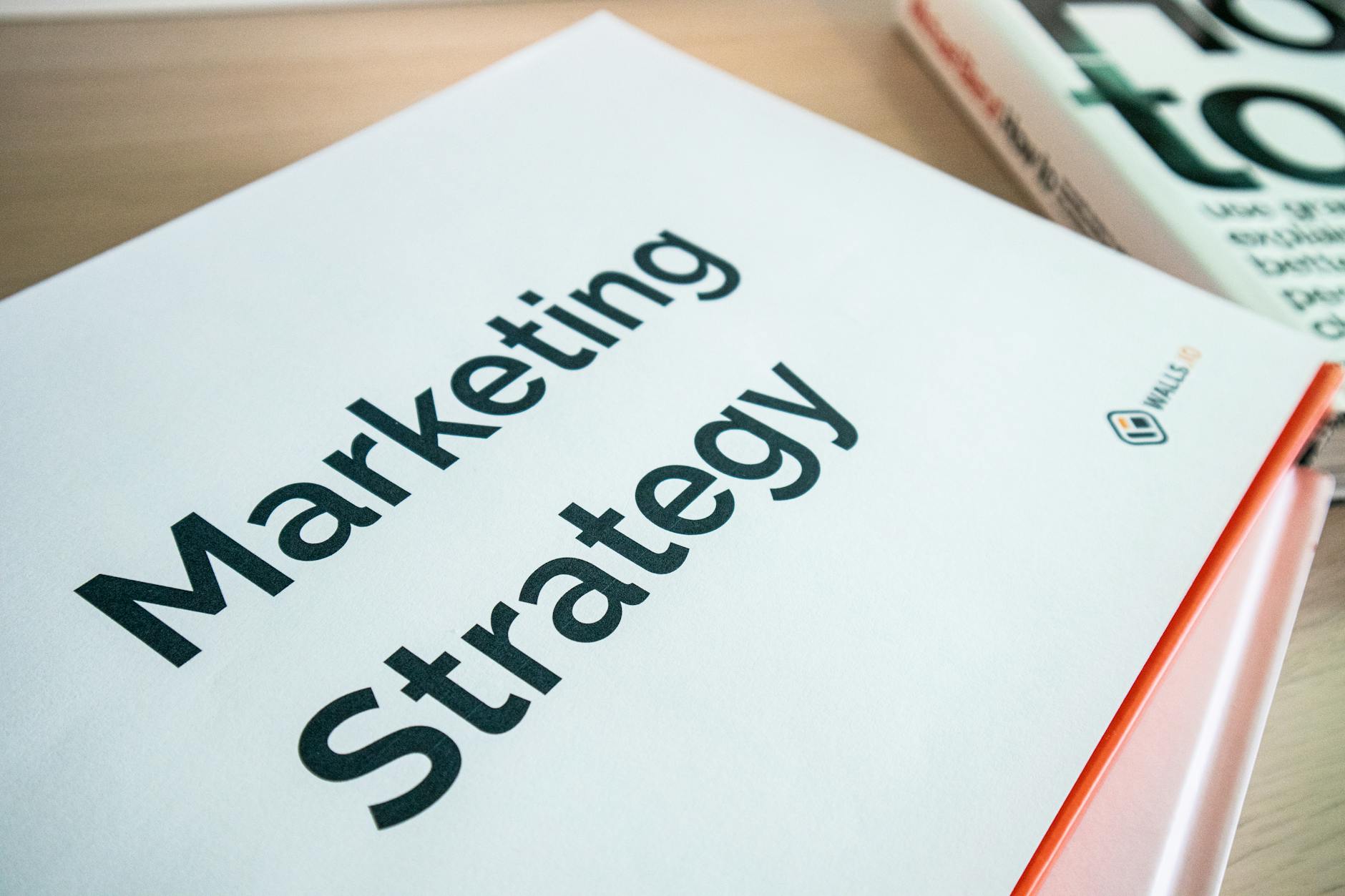Starting a small business isn't just about dreaming big; it's about acting on insight and preparation. With nearly 70% of small businesses lasting at least two years, understanding the essentials can position you for success. The right advice for starting a small business can make the difference between thriving or barely surviving. Proper planning, understanding your market, and having a robust strategy are vital. You'll face challenges, but with the right tools and mindset, there's a pathway to success.
For those embarking on this journey, learn from experts and resources to ensure solid foundations. Explore how to create a successful home business or seek business coaching services that can provide the insights you need. Proper steps in the beginning can propel your venture toward sustained success.
Understanding Your Business Idea
Before you dive into the bustling world of entrepreneurship, taking a step back to thoroughly understand your business idea can set the course for a successful venture. Your idea isn’t just a concept; it’s the foundation of everything you’ll build. From identifying your niche to conducting market research, each step is crucial for laying down a robust plan.
Identifying Your Niche

Finding a niche that aligns with both your passion and market demand is key to creating a sustainable business. A profitable niche not only narrows your focus but also positions your brand to meet specific needs effectively. Here are some tips to guide you:
- Evaluate Your Interests and Skills: Passion fuels perseverance. Identify what you enjoy and combine it with what you're skilled at to find a suitable niche. Consider using resources like Shopify’s guide on finding a niche for additional insights.
- Research Trends and Market Demands: Scour through current industry trends and identify gaps. Use tools like Google Trends to see what people are searching for and check out competitors for potential opportunities overlooked by them.
- Test Your Ideas: Before committing, test your ideas within forums or network groups. Platforms like Reddit's Entrepreneur community can provide feedback and reveal whether your niche idea resonates with potential customers.
Photo by Artem Podrez
Conducting Market Research
Conducting thorough market research is like holding a magnifying glass to your business idea, revealing the intricate details of customer needs and industry gaps.
- Identify Your Potential Customers: Who are they? What do they need? Use surveys to gather data directly from potential customers. Platforms like ActiveCampaign offer affordable tools for conducting online surveys.
- Analyze Competitors: Understand what your competitors are doing right and where they fall short. Tools like competitor analysis reports can provide a wealth of insights.
- Adapt Economic Trends: Recognize economic signals and how they impact your target audience. Resources like the SBA's guidelines blend consumer behavior with economic trends for a coherent picture of the market landscape.
By meticulously identifying your niche and thoroughly conducting market research, you equip your business with a solid footing for future growth.
Business Planning Essentials
Crafting a successful business requires more than just an idea. It involves careful planning and strategic foresight. This section dives into the essentials of business planning that are crucial for anyone looking to start a small business.
Creating a Business Plan Template
A business plan is like the blueprint for your business. It's vital for laying down a structured path to follow. At its core, a business plan should cover:
- Executive Summary: A brief overview of your business and its goals.
- Business Description: Detailing what your business does and its unique value proposition.
- Market Analysis: Research on your industry, market, and competitors.
- Organization and Management: Your business's organizational structure and the team involved.
- Sales Strategies: The action plan for reaching and selling to your target market.
- Funding Request and Financial Projections: If you need funding, outline your requirements and future projections.
A business plan template can be a great starting point. It's a comprehensive guide that ensures you don't miss any crucial components.

Photo by Kaboompics.com
Setting Financial Projections
Accurate financial forecasting is paramount. It sets realistic expectations and helps you align with your business goals.
- Startup Costs: Estimate costs for marketing, equipment, inventory, and other key expenses.
- Revenue Projections: Predict the revenue based on market research and pricing strategy.
- Cash Flow Statements: Ensure you monitor cash movements to avoid liquidity issues down the line.
Consider using tools and consulting resources like SCORE for financial guides that have helped small businesses secure the funding they need.
Establishing Your Business Structure
Choosing the right business structure is crucial for legal and operational reasons. Here are a few options:
- Sole Proprietorship: Simple and inexpensive, but personal assets are not protected.
- Partnership: Good for running a business with others, but be sure of legality with a partnership agreement.
- Limited Liability Company (LLC): Offers liability protection and flexibility in management.
- Corporation: Best for larger businesses needing to raise capital, but involves more regulations.
Each structure has implications for taxes, legal liability, and costs. Doing thorough research into each option helps, and you can explore additional insights to choose the best fit for your operations.
A business structure isn't just a formality—it's a cornerstone that affects every part of your business journey.
Funding Your Small Business
Securing the right funding is as critical as nurturing your business idea itself. Without proper financial backing, even the most promising ventures can find themselves at a standstill. The path to funding a small business can seem intricate, yet understanding your options can be transformative. Here’s a closer look at how to finance your small business efficiently.
Self-funding and Personal Savings

Photo by Antoni Shkraba
Relying on your savings or self-funding is one of the most straightforward methods to kickstart your business. You’re using your resources to fuel your dream. But like every coin, it has two sides:
Pros:
- Autonomy: Control remains entirely in your hands. You aren't answerable to investors or creditors, giving you the flexible autonomy to steer your business.
- No Repayment Pressure: Without loans, the stress of repayment and interest doesn't hang over your head.
Cons:
- Financial Risk: There's an inherent risk of losing personal savings if the business doesn't take off.
- Limited Capital: Growth can be slow due to limited funds, potentially stifling expansion opportunities.
Self-funding demands a careful introspection into your financial health and risk tolerance before diving in.
Small Business Loans and Grants
Navigating the world of small business loans and grants can seem daunting, but it's a path well worth exploring. Many programs can provide the capital needed to bring your business vision to life. Here's how you can proceed:
Know Your Options:
- Various financing options for small businesses include traditional bank loans, SBA loans, online loans, and grants. Each has different criteria and benefits.
U.S. Small Business Administration (SBA) Programs:
- The U.S. Small Business Administration offers several loan programs like the SBA 7(a) and SBA 504 loans, which are popular choices for many entrepreneurs due to their favorable terms. They are a great starting point for securing funds with manageable interest rates.
Applying for Grants:
- Grants are free money, typically from government or private sector sources, which do not need to be repaid. While competitive, they are a valuable resource. Explore options for small business grants and see if any align with your field or mission.
Understanding how to apply for these resources can make a substantial difference in your business's financial foundation.
Investors and Crowdfunding
Sometimes, tapping into outside funds is the most viable method to launch or grow a business. Investors and crowdfunding platforms can be ideal channels for this purpose.
Raising Money Through Investors:
- Investors can inject significant capital in exchange for equity or an ownership stake. This means you'll share decision-making power, yet gain valuable insights and connections from experienced partners. Venture capitalists and angel investors are prime candidates for this route.
Crowdfunding Platforms:
- Crowdfunding involves raising small amounts of money from a large number of people, typically via platforms like Kickstarter or GoFundMe. This method not only brings in capital but also helps validate your business idea before it hits the market.
Crowdfunding and investors represent two sides of the funding coin that can provide the financial support your small business needs while connecting you with passionate supporters or seasoned professionals.
By assessing these funding paths, you can choose the best route to support and grow your small business. Each option has its unique advantages and challenges, all contributing to how you shape your entrepreneurial journey.
Building Your Brand
Creating a strong brand is crucial when starting a small business. It's more than just a logo or a catchy name—your brand is the identity and voice of your business. A well-crafted brand will resonate with customers, inspire trust, and set you apart from your competitors. Here's how you can start building your brand:
Choosing a Business Name: Tips for a Memorable Brand
Choosing the right business name is like giving your business its first impression. It's vital to make it count. A memorable and effective name captures the essence of your business and reflects its values. Here are some tips:
- Keep It Simple: Choose a name that's easy to spell and pronounce. A name that's too complex can deter potential customers.
- Reflect Your Brand Identity: Your name should give insight into what your business stands for and its core values. It should convey the essence of your brand in a word or two.
- Be Unique and Descriptive: Ensure your name stands out but also describes the product or service you offer. Unique names are easier to remember and search for.
- Check Availability: Before finalizing, check domain availability and ensure the name isn't already trademarked.
Choosing a name is akin to laying the first brick of your brand foundation. Make it solid and purposeful.
Creating a Logo and Visual Identity

Photo by Corentin HENRY
A logo acts as the visual cornerstone of your brand, offering an instant visual cue for brand recognition. Creating a strong logo requires thoughtful consideration:
- Simplicity is Key: A simple logo is more likely to be remembered and recognized. Overcomplicated designs might lose their impact.
- Color Consistency: Colors evoke emotions. Choose a palette that reflects your brand's character and use it consistently across all marketing materials.
- Professional Design Matters: Investing in professional design services can make a significant difference. A well-designed logo builds credibility and trust.
Beyond the logo, consistency in visual identity—such as fonts, colors, and imagery used—ensures brand cohesion and enhances recognition. As your brand identity takes shape, it's important to think of it as crafting the visual story of your business. For further insights into creating a robust brand, check out this Forbes article on the importance of branding.
By following these steps, you're not just building a brand; you're creating an experience. This sets a foundation for your business to thrive in a competitive market. Curious about more branding strategies? Explore our post on successful entrepreneur branding for additional ideas.
Utilizing U.S. Small Business Administration Resources
Navigating the entrepreneurial journey can be overwhelming, but the U.S. Small Business Administration (SBA) offers invaluable resources that can ease this process. From guidance to funding, the SBA is a treasure trove of opportunities for small businesses. Whether you're starting or expanding your venture, tapping into their offerings can be a game-changer.
SBA Business Counseling and Support

The SBA provides essential counseling and support to small business owners through various programs. To access these, you can start by visiting the SBA's website. They offer a myriad of services aimed at nurturing small businesses:
- SCORE Mentoring: Through SCORE, you can connect with seasoned business mentors who offer free and confidential advice.
- Small Business Development Centers (SBDCs): SBDCs provide counseling, training, and technical assistance in all aspects of business management.
- Women’s Business Centers (WBCs): These centers support women entrepreneurs with business training and counseling.
These resources can help you refine your business strategy, solve operational challenges, and connect with an expansive network of professionals.
Navigating the SBA Loan Programs
Funding is a critical component of any successful business. The SBA does not directly lend money but works with partners to provide loans at favorable rates. Here’s a quick rundown of what’s available:
- SBA 7(a) Loan: This is the most popular loan program, suitable for various business needs such as working capital, expansion, or purchasing equipment.
- SBA 504 Loan: Ideal for purchasing long-term fixed assets like real estate or machinery.
- Microloan Program: Provides smaller loans of up to $50,000 to help start up or expand small businesses.
With these options, the SBA facilitates access to funding that might not be available through other channels, helping you lay a solid financial foundation for your business. More details on these programs can be found on the SBA's loan page.
Learning from SBA Training Programs
Continuous learning is the heartbeat of successful entrepreneurship. The SBA offers a variety of training programs designed to enhance skills and knowledge:
- Online Learning Center: Offers free courses on various topics including finance, marketing, and management.
- Boots to Business: A program designed for veterans, providing them with the knowledge and tools to start or grow a business.
- Local Workshops and Seminars: Often hosted by local SBA offices or partners, these events cover a wide range of topics pertinent to running a business.
These training options empower you with the skills needed to adapt and thrive in a constantly changing business environment. For more detailed programs and schedules, check out SBA Training Programs.
By utilizing SBA resources, you can enhance your business acumen and gain a competitive edge in the market. Remember, the right support and knowledge are only a few steps away.
Marketing Your Small Business
In the age of digital connectivity, marketing your small business is about more than just traditional advertising methods. It's about connecting with your audience on platforms where they spend the most time. Developing an effective marketing strategy helps establish your brand, draw in customers, and grow sales. Let's dig into how you can maximize your marketing efforts with social media and a strong online presence.
Utilizing Social Media

Social media isn't just a buzzword; it's a vital tool for small businesses trying to reach their audience without an intimidating overhead cost. Millions are already using platforms like Facebook, Instagram, and TikTok to discover new brands. Is your business one of them? Social media allows you to:
- Engage Directly with Customers: Respond to comments, answer questions, and build relationships with your audience in real-time.
- Inform and Entertain: Use creative content like short videos, stories, and posts to inform your audience about your products and engage them with your brand's personality.
- Reach New Audiences: Hashtags, shared content, and social media ads can expand your reach to new customers who may never have found you otherwise.
If you're eager to enhance your strategy, dive into this guide on marketing your small business for practical, budget-friendly tips. For more specific strategies, view Boost Your Business with Budget-Friendly Marketing in 2024.
Photo by Eva Bronzini
Building a Website and Online Presence
When it comes to credibility, a professional website is a non-negotiable element in your marketing playbook. In a digital-first world, your website often serves as the first impression of your brand.
- Showcase Your Products and Services: Your website is your brand's digital showroom. Use it to feature products, services, testimonials, and anything else that sets you apart.
- Boost Your SEO: Optimize your website with relevant keywords to enhance your visibility on search engines. This means more eyes on your business without costly advertising methods.
- Enable Easy Contact: Make it simple for visitors to get in touch, whether through a chat feature or contact forms.
Embracing a robust online presence doesn't stop at just having a website. Consider how other elements like SEO and mobile optimization can further enhance your business. For more insights on crafting a strong online presence, check out this ultimate guide to small-business marketing.
Marketing your small business effectively involves embracing these digital tools to create meaningful connections and foster business growth.
Ensuring Compliance and Legal Requirements
Navigating the waters of compliance and legal requirements might seem daunting when starting a small business. However, it's a crucial aspect that ensures your business runs smoothly and avoids costly penalties. Understanding these basics allows you to focus on growth, knowing that you're on solid legal ground.
Getting the Right Licenses and Permits

Photo by RDNE Stock project
Every business, regardless of size, must secure the appropriate licenses and permits to operate legally. These vary based on your industry, location, and the nature of your goods or services.
- Federal Licenses: Some businesses, like those selling alcohol or firearms, require federal approval.
- State and Local Licenses: Most small businesses need a combination of state and local licenses. This can include a general business license, health department permits for food-related businesses, or professional licenses for services like law or medicine. Explore this checklist for a comprehensive understanding of what's required for your setup.
- Industry-Specific Permits: Depending on your field, additional permits may be necessary. For example, a construction business will need specific building and safety permits.
Ensuring you have the right licenses is like constructing a building's foundation—without it, everything else is shaky. You can also check resources like this guide from the SBA to help navigate these requirements.
Understanding Taxes and Insurance Needs
Understanding the tax structure and insurance requirements for your business is key to maintaining compliance. Taxes vary significantly depending on the structure of your business and where it's located.
- Types of Taxes: Businesses face a variety of taxes, including income tax, employment tax, and sales tax. The IRS guide provides in-depth insights into these tax obligations.
- Estimated and Self-Employment Taxes: Many small business owners need to pay these quarterly. They cover both income and the self-employment tax, which funds Social Security and Medicare.
- Insurance Needs: Essential for protecting your business from unforeseen liabilities, insurance types can include general liability, property, and workers' compensation insurance. Resources like The Hartford's business tax guide can offer valuable advice on insurance needs.
Understanding taxes and securing the proper insurance shields your business from financial risks and maintains its integrity. For more specialized advice, you might explore Forbes’ comprehensive guide on small business taxes.
By covering these compliance and legal fundamentals, you position your business for stability and growth. Establishing this legal groundwork is not just about ticking boxes—it's about empowering your entrepreneurial journey with confidence and credibility.
Conclusion
Starting a small business demands commitment, strategy, and the right guidance. Embrace the steps outlined to lay a strong foundation. From understanding your business idea to effective planning, financing, branding, and marketing, these elements are crucial for success. Remember to leverage resources like the U.S. Small Business Administration to gain a competitive edge and boost your business with expert help.
Take action today. Begin by crafting a detailed business plan and conducting thorough market research. Explore how others have successfully started their ventures with these home business ideas or consider attending upcoming events for networking opportunities.
Your entrepreneurial journey starts with courage and informed choices. The knowledge shared here equips you for the road ahead. Take the plunge, and transform your business vision into reality.



